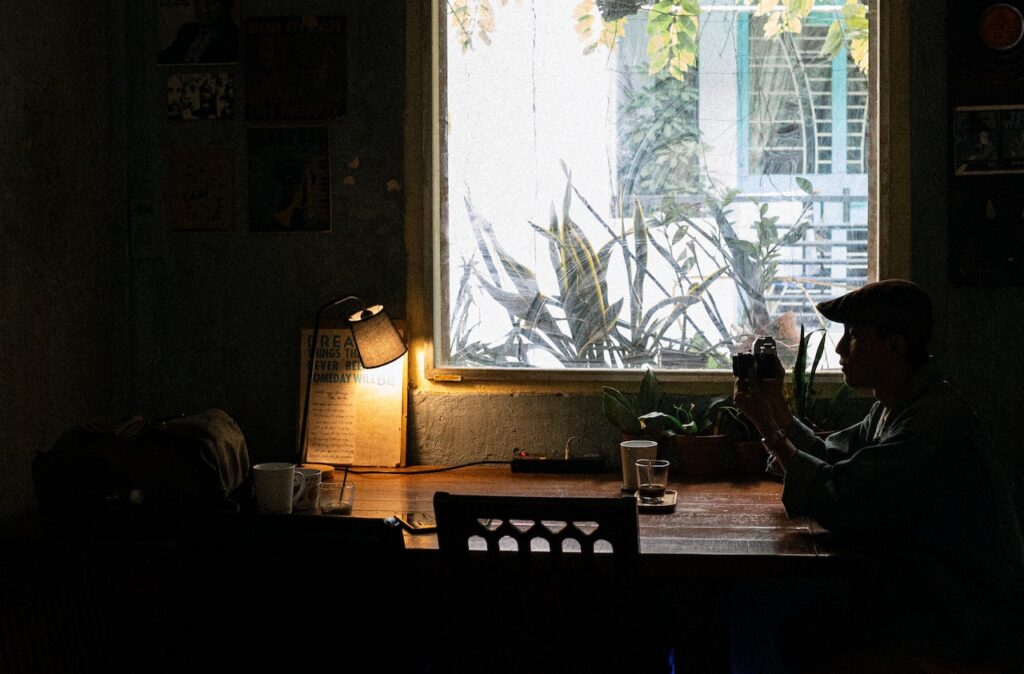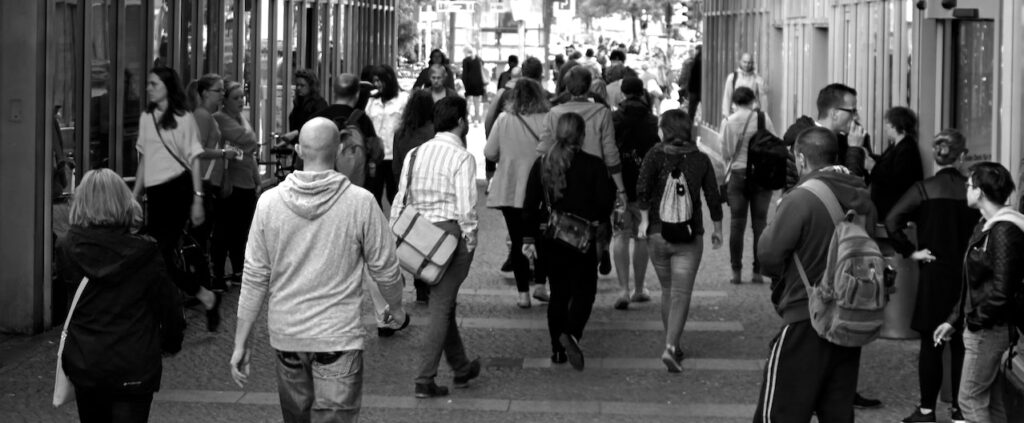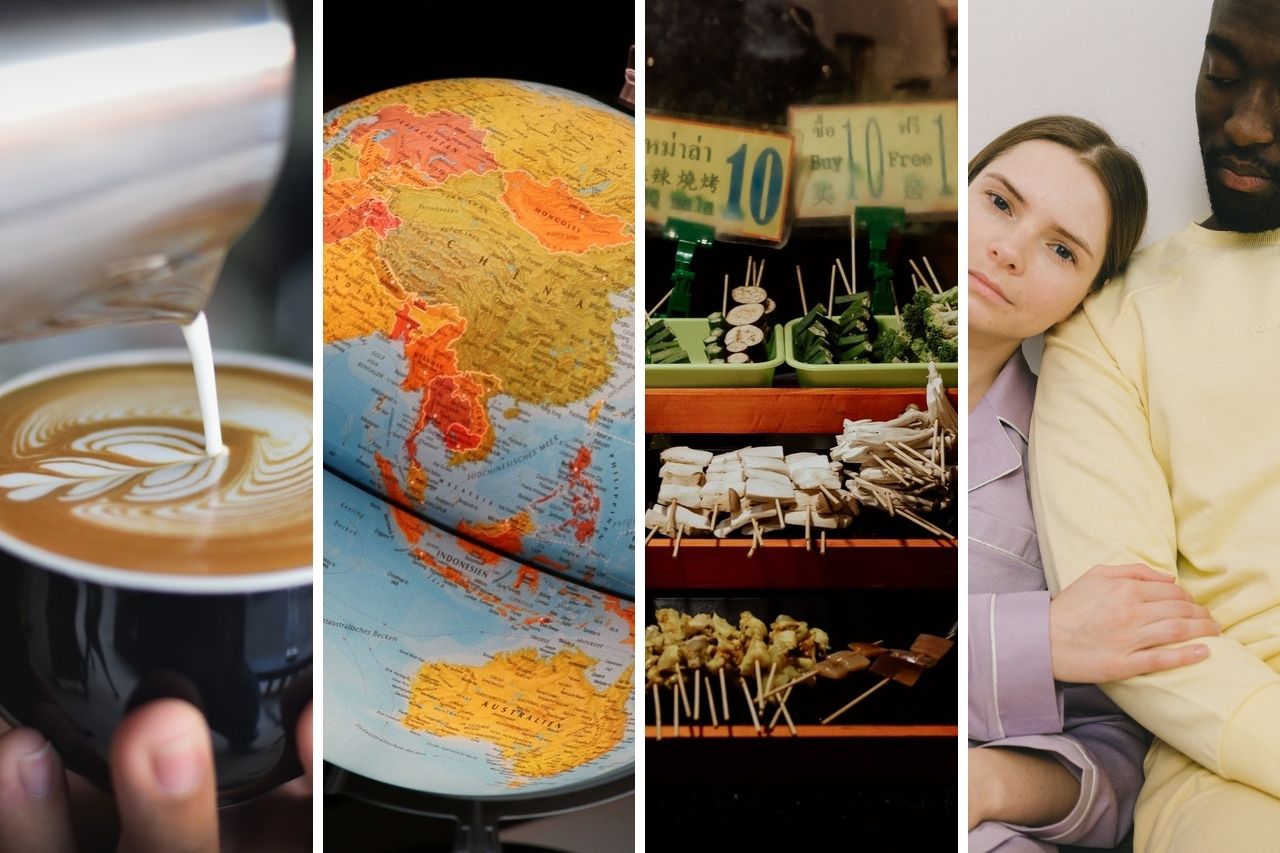It’s been a few years now since I began the expat stage of my life. I travelled overseas with my wife to a country foreign for both of us. And while all these thoughts were going on, I also decided to start this blog for all other expats looking for information. Especially those who needed to hear the story from the husband’s side.
Here are a few dot points, tips, and links to information and things that I have learnt so far. My hope is that it’s relevant to all travelers and migrants and not just nomadic husbands. Here are the 9 things I have learnt living as an expat.
Homesickness does eventually hit

Being an expat can actually be quite lonely. Whether you move on your own, or with your family, there will be a time where you start to miss home.
It doesn’t necessarily have to be your home exactly, your family, or anyone else. Perhaps you just miss the weather back at home, the taste of your favourite coffee, or just the smell of that place around the corner. Smell and taste, can both be extremely strong senses that can in an instant transport you back in time and location.
These are all triggers that remind us of a place that is familiar and comfortable for us. They remind us of things that make up our identity.
As an expat I knew that getting homesick would eventually happen. But I wasn’t really sure what to do about it, or if anything really could be done about it. Sometimes you just have to wait for the feeling to pass.
You may also be able to address your feelings of homesickness by;
- Reconnecting with friends and family,
- Finding people, places, and things that remind you of home,
- Creating new memories in the place you are in now,
- Joining an expat group or community; where feelings like these are quite normal.
You can’t always talk about your job

Expats go overseas for their work, for all kinds of reasons. Sometimes it’s glamourous, and sometimes it’s not.
There are all kinds of jobs that you may not feel comfortable talking about; whether it’s working for a large company, diplomacy, or even private work for a family.
Your project may also be tied to a specific release or publication date, and therefore you have to be tight-lipped about it.
You may not want to reveal that part about yourself; since often time people who are not familiar with your line of work may be judgmental or have a lot of questions.
In a world where many people base their judgement of you based on your job, and discussion about your work happens so often, it can feel a little isolating.
You may only really want to talk to other expats from the same field, or people who are comfortable not bringing up work. And depending on where you’re based, that could be easier or harder.
This sense of loneliness, and not really having anyone who you feel you can relate to is had for expats. And it’s one of the reasons why people advise to find a new group or tribe of like minded individuals sooner rather than later. If you’d like to see other ways having a community of expats to talk can help with integration, follow the link to my article here.
You may not save as much as money as people think

Continuing our discussion on what people think and believe about what an expat does; let’s talk about money.
While it’s true, many people will think that an overseas job automatically means more money, there are other factors to consider.
Working as an expat usually also includes:
- Hiring an international moving service,
- Flights tickets,
- Potentially buying familiar or necessary items in bulk,
- Buying weather-specific clothing,
- Insurance,
- Paying for things in advance
- Sending your children to international schools, and (of course)
- First times and making financial mistakes
Typically an expat will move overseas for a better job. And we’ve been told that a better job means more money, but it could also mean other things. Someone could move overseas for better working conditions, more respect from employers, and of course for wanderlust.
We have to acknowledge that most people who travel overseas for work, at least to an extent, like the idea of being in and experiencing another country.
You can see here that money may not always be the motivating factor for an expat selecting their job, and that also there are many unique and often hidden costs to a life over the seas.
Sometimes the places you go, are yours alone

When exploring a new city or country, it’s easy to think back about your past life. About your friends and family who would love that new hiking view, café, or shopping district you found.
I have often caught myself thinking, “Wow, I can’t wait to show them this place.” But often times your family and friends from overseas will never be able to experience the thing you want to share.
They are constrained by their own lives and personal stories. And it’s important to realise here as an expat, that the person who will benefit most from all these travels and experiences first; is you. So don’t forget to make sure that you are enjoying and soaking up the moment for yourself too.
Thankfully, now there are many ways to share our journeys and our enjoyment with our loved ones. We can send pictures via text or social media; you may even want to create your own blog to document your experiences!
If you want some amazing travel quotes to encourage your wanderlust and give you that push you need; follow my article here, for a quick read of some inspiring quotes.
You may never truly feel local

The world becomes ever more connected, and it isn’t uncommon to see people from all around the world walking streets of another country.
Despite this, it can be difficult to shake the expat or foreigner identity that hangs over you like a shadow. And you might even argue that there’s no real reason to completely ignore that part of you.
But a part of you will still want to fit in; perhaps you just want to sit down at an establishment without people looking at you like a spectacle. Or maybe you, rightfully, want to avoid being charged foreigner prices when you take a taxi or go to the market.
And doing things like learning the language or following local trends, may help you blend in. However, you may very well never feel truly at home.
Personal belongings, materialsm, and feeling at home

How much you bring with you on your expat journey will decide how much this next one is relevant.
Much like homesickness, I didn’t really appreciate how important personal belongings and trinkets were.
I thought it was better to bring as little with me as possible, since I would be on the move a lot. What I didn’t understand was that I wasn’t going to travelling or holiday for years on end.
Expat life is more about settling down and making your home in another place. No matter how long or short your stay is.
And when you sit in your new room or apartment, without any of the things that made your previous home a home, it’s easy to feel something missing.
Don’t worry too much about feeling materialistic. Or that you need your equivalent of a “comfort blanket”. Some times physical objects can help us stay connected to our homes, and also turn our current empty rooms into places of living.
If you have a favourite painting, book, or trinket; why not take it with you?
An article I wrote a while back defines the distinction between; packing for a short term holiday and packing for an expat posting. Check it out if you think you’re going to be travelling soon!
Relying on yourself, as well as seeking help in new places
As you walk the often lonely road, you learn to rely on yourself a lot more than you may have. But on that journey you will meet new people, they will come into your lives, if only briefly, and they may be able to help you in ways you never knew.
Living abroad, and setting up a life in a foreign country, has taught me a lot about independence and relying on yourself. There will be no-one else to remind you about pressing matters. And often times the only who can help you is yourself.
Meaning you will need to learn a lot of new things to get by.
But of course, when the road for independence ends, the one for teamwork and seeking help begins. And one of the hardest things is knowing which path to pick at which time. When is it time to say, I’ve given it my all, now I need to call in some outside help.
Of course, finding that help, in an unfamiliar country, with little contacts, can be a massively daunting task.
There are many soft skills that an expat will need that don’t necessarily relate to their job. This is one, if you are looking for some more examples, follow this link to my article here.
People coming and going is part of your life now

When I was a lot younger my mother would often play host to exchange students from her home country.
It meant that mum had an outlet to speak her language, cook her food, and be connected with a living branch of her culture.
But that cultural connection was important for us too. We had mixed heritage, struggled to speak the language, and were pretty much removed from her side of the culture.
However eventually we stopped doing that, I imagine my mum got tired. It’s a hard thing to do on your own. But one of the things she mentioned was, eventually the constant influx of new faces wore her out.
She would meet bright-eyed, new students; only for them to leave her life and go back to their own a few years later.
I can say that I understand her predicament a bit more now.
Living and working as an expat many people come in and out of your lives. So many promises to meet up, and share a coffee, are never actualized. Work requirements shift, dynamics change, and sometimes VISA’s just don’t get renewed.
All of a sudden that person is out of your life for the foreseeable future.
If there’s any thing that living as an expat has taught me; is that you really can’t predict what will happen in the future. You don’t who will or won’t be there with you with guaranteed certainty.
For that reason, take advantage of the time you have.
- Enjoy the small moments you have to breathe,
- Be present in those conversations you have (in person or online),
- And make a bit more effort to see that person or attend that thing you’ve always wanted to.
“There’ll always be another time,” is tricky advice for an expat.
Growing up through the expat experience is all about learning and understanding; yourself and others. So if you would like to know more about how things like migration and expatriation can teach empathy, follow my link here.
Don’t get caught up in just another rat race

Did you move countries, leave your former work environment, just to get caught in another rat race?
When we refer to “living as an expat” there are varying degrees of comfort and privilege associated with that. We need to acknowledge that first.
You had the ability to move from your country (or city) to another one. You were able to settle well, and you may even be able to live the life you have always wanted in this new location.
Unfortunately not all of us who move overseas have the same luxury as each other.
Some of us do not even have the luxury of calling themselves expats, just migrant workers.
That said, the hope is that with your move and your new expatriate life, that things are at least a little better than they were before.
Don’t forget to, every now and then, stop and smell the roses. Slow things down.
You have the ability to live in a city that for many other people only lives in their minds as a postcard or dream. While the most important thing is to sustain yourself and the lives of your dependents, don’t forget to enjoy your stay.
Allow yourself to get lost and enjoy your new home. Find places that you enjoy, and let those things find a place in your heart too. You may feel that you don’t have the time to do so, or that you don’t want to become too attached to this temporary place. But when it comes time to leave, you’ll be asking yourself, why you didn’t start this earlier.




